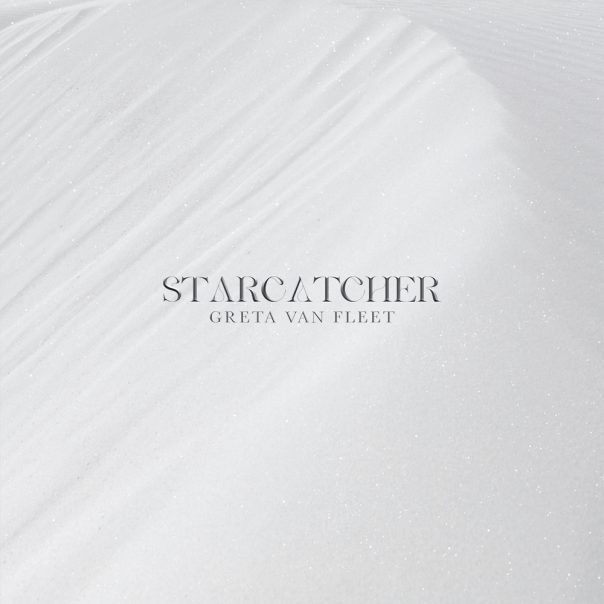ALBUM REVIEW: Greta Van Fleet returns to its garage rock roots on ‘Starcatcher’

Greta Van Fleet, “Starcatcher.”
Greta Van Fleet is always going to be compared to Led Zeppelin. Any review about the rockers that tries hard to avoid the comparison will instead lean on terminology like “1970’s rock.” Which is also true. The band sounds like many of its prominent rock influences: Cream, The Doors, The Who. But mostly Led Zeppelin.
Starcatcher
Greta Van Fleet
Lava/Republic, July 21
7/10
Get the album on Amazon Music.
The Michigan outfit comprised of brothers Josh (vocals), Jake (guitar) and Sam Kiszka (bass), and drummer Danny Wagner, formed in the Kiszka garage. The group’s first single, “Highway Tune,” followed in 2017 to widespread acclaim with critics noting those classic rock similarities.
Greta Van Fleet tried so hard to escape them on 2021’s The Battle at the Garden’s Gate. It was a calculated risk and a valiant attempt to establish its own style in the rock canon. But the album came out to mixed reviews. This makes new album Starcatcher, which the band has described as a return to the garage, a bit of a gamble. It meant returning to the aggressive Zeppelin-esque sound that brought the band so much acclaim and ire in the first place.
And the result? Greta Van Fleet may have made their coolest album yet. Hey, give the people what they want.
Album opener “Fate of the Faithful” sets the tone and establishes the sonic differences between Starcatcher and its predecessor. The song is slow but powerful. The Jimmy-Page-style “big riff” sound that Jake Kizska is so fond of is placed front and center and Josh Kiszka comes out swinging with a wail that’s more pronounced by design. Overall, it’s a fitting return to form and does well to set expectations.
“Sacred the Thread” is another highlight. It’s a solid song in its own right, but it’s impossible to hear the opening drumbeat without also hearing “When the Levee Breaks.”
The first part of the album suffers a bit from pacing with four consecutive low-tempo songs, but this pattern is broken up by “Runway Blues,” a fast-paced romp through the tastiest, most chaotic licks Greta Van Fleet has to offer. Especially decadent is the well-placed drum break at the end that gives way to a Tom-Morello-style helicopter guitar effect, then a string-bending guitar solo that shows off Jake Kiszka’s growth as a musician. The biggest pitfall is it’s over too soon, only clocking in at under 80 seconds. Even so, it’s a worthy highlight.
From here, the album picks up considerably. “Indigo Streak” and “Frozen Light” are easily two of the band’s best songs yet—amazing pastiches of ’70s hard rock sound both instrumentally robust and faithful to the band’s garage rock days. It sounds as if both were written around their opening riffs in a way that works. The result is commanding and forceful from the very first seconds.
Starcatcher catches Greta Van Fleet hitting its stride. In Led Zeppelin terms, it’s Led Zeppelin IV—that band’s most consistent album yet.
The album is only 10 songs, but it contains some of Greta Van Fleet’s best material. Paced differently, the experience would be even more compelling than it already is.
When Led Zeppelin first came on the scene, it shook the music world and electrified a youth culture with chaotic noise, cryptic mysticism and powerful sexuality. They were dangerous and subversive in a way that had never been seen before. But Greta Van Fleet is subversive in a different way. Currently, rock is being overtaken in popular music by innovations in hip-hop and R&B. Industry pressures are forcing a lot of artists to converge on a generic, safe sound palatable to the largest amount of people. Ozzy Osbourne is doing commercials.
With rock experiencing an identity crisis, it means a lot to care this much about reviving a classic sound.
